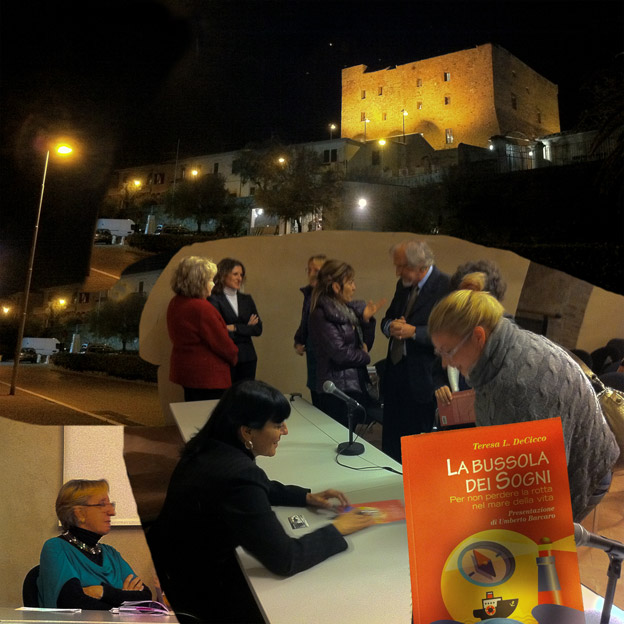Subscribe to:
Post Comments (Atom)
skip to main |
skip to sidebar

Living Beyond the Five Senses
The Giant Compass: Dream Book
Blog Archive
-
▼
2012
(32)
-
▼
May
(7)
- Opinions Not Backed By Facts: Changing Paradigms
- Mental Illness and Dreams
- The Storytelling Method and Recovery Alcoholism
- The Storytelling Method with Breast Cancer Patients
- The Storytelling Method of Dream Interpretation
- "Our Dreaming Mind" by Robert L. Van de Castle
- New Blog Posting On Monday May 14th
-
▼
May
(7)
About Me

- Teresa L. DeCicco
- I am a professor, author, researcher and applied clinician in Psychology. I became interested in the science of consciousness and dreaming while working with cancer patients, years ago. I noticed that the cancer patients I worked with wanted to talk about their dreams. Though I was not particularly interested in dreams at the time, patients continued to bring them up; session after session. I finally decided to explore the science of dreaming and found a whole world of knowledge. The science of dreaming was being studied all over the world by a vast array of scientist! This is when my own scientific explorations began. I studied dreams and then designed techniques for linking them to waking day life in meaningful ways. My work became focused on helping people with self-discovery and self-change. Dreams can help with health issues, relationships, work-related issues, and bring life-changing information into the conscious mind. Dreams are a problem-solving mechanism that will bring forth novel solutions. My work is my way of sharing what I have learned from research and practice, with the world.

I found the preface of this book really interesting. I now wish I would have paid more attention to my dream throughout my life; there is so much about dreams that just never occurred to me. Just by reading the preface I can see how well the author ties together the quantitative as well as the qualitative aspects of dreams. He starts talking about his life and his experience and love for dreams and dreaming from the beginning of his life. He chats about his first experiment and the second and so forth, after each experiment he learns something knew and learns how to quantify his research through data and using EEGs.
ReplyDeleteI love the whole section about the Cuna Indians; it ties in the scientific, the personal and the guidance of one’s life. Just by reading the preface I can see how much his time spent with the Cuna Indians affected him and his work. I feel like I can relate a bit to this…I love to travel and I was born in Germany, lived in the USA for ten years, lived in Canada for ten years and I visit my family often in Hungary. I feel like I have been immersed in different cultures, but I have never realized that culture may affect my dreams. I really want to pay more attention to my dreams and see if they are more built on western cultural ideals or European ones. I guess it makes perfect sense if you think about culture playing a part in ones dreams. Our individualities are essentially built by our surroundings and culture, it does make sense they would be a part of us in the conscious and unconscious states.
I also love that Robert has not and does not just settle into one aspect of research. It is so interesting to look at how dreams change depending on if you are menstruating, pregnant, a teenager, an adult etc. I can’t wait to read more and explore this new topic. I really hope I can remember my dreams and hopefully be able to see what influenced them and interpret them :)
oops lol, clearly the wrong place to post :]
ReplyDelete